My Blog
Crane Consulting Unveiled: Strategies for Optimizing Your Operations
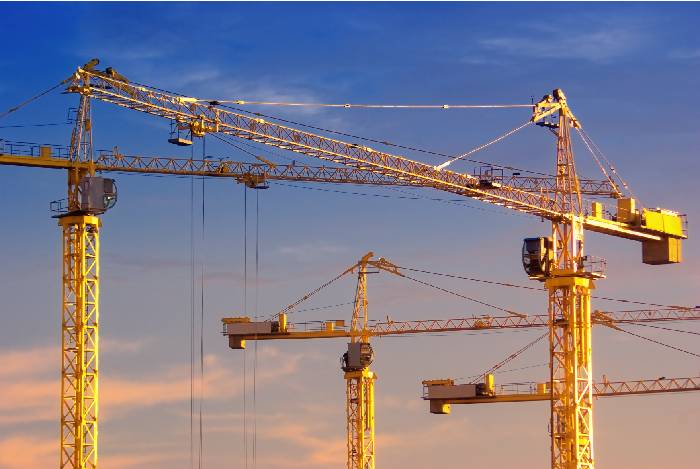
In the dynamic world of industrial operations, cranes play a pivotal role in lifting, transporting, and maneuvering heavy loads. Their versatility and power make them indispensable tools for construction, manufacturing, and various other industries. However, the complexities of crane operations demand a deep understanding of safety, efficiency, and compliance. This is where crane consulting firms like Cranegod Services step in, providing expert guidance to optimize crane operations and enhance overall project success.
Best Crane Consulting: A Guiding Force for Operational Excellence
Crane consulting encompasses a comprehensive range of services tailored to address the unique challenges and opportunities of crane-driven operations. At the heart of this expertise lies the ability to assess, analyze, and optimize crane usage patterns, ensuring that these powerful machines are deployed safely, efficiently, and in compliance with industry standards.
Crane Safety Consulting: Putting Safety at the Forefront
Safety is paramount in any industrial setting, and crane operations are no exception. Cranegod Services’ safety consulting services prioritize the well-being of workers and the integrity of equipment. Our team of experienced consultants conducts thorough risk assessments, develops comprehensive safety protocols, and provides hands-on training to instill a culture of safety throughout the organization.
Mobile Crane Expertise: Harnessing the Power of Mobility
Mobile cranes offer exceptional mobility and flexibility, making them ideal for a wide range of applications. Our mobile crane expertise encompasses everything from selecting the right crane for specific tasks to developing efficient operating procedures and ensuring compliance with regulatory guidelines.
Crane Management Services: Orchestrating Efficient Crane Operations
Effective crane management is crucial for maximizing productivity and minimizing downtime. Cranegod Services provides comprehensive crane management services, including:
- Crane utilization analysis: We evaluate your crane usage patterns to identify areas for improvement and optimize resource allocation.
- Maintenance planning and scheduling: We develop preventive maintenance plans to keep your cranes in top condition, reducing the risk of breakdowns and unplanned downtime.
- Crane operator training: We provide specialized training to enhance the skills and knowledge of your crane operators, ensuring that they operate safely and efficiently.
The Benefits of Crane Consulting: A Strategic Investment
Engaging a crane consulting firm like Cranegod Services offers a multitude of benefits that extend far beyond safety and efficiency. Our expertise can help you:
- Reduce operational costs: By optimizing crane usage and implementing preventive maintenance practices, you can minimize downtime, extend crane life, and lower overall operational costs.
- Improve project timelines: Streamlined crane operations lead to faster project completion, reducing delays and keeping your projects on schedule.
- Enhance compliance: Our consultants stay abreast of the latest industry regulations and ensure that your crane operations adhere to all applicable standards, minimizing legal risks and potential liabilities.
- Foster a culture of safety: Our safety-centric approach instills a culture of safety awareness within your organization, protecting your workers and enhancing overall workplace safety.
Crane Consulting: A Path to Operational Excellence
In the intricate world of industrial operations, cranes serve as the backbone of productivity and efficiency. Cranegod Services crane consulting expertise empowers businesses to harness the full potential of these powerful machines, optimizing operations, enhancing safety, and ultimately achieving operational excellence.
Annual Crane Inspection Checklist: A Step-by-Step Guide
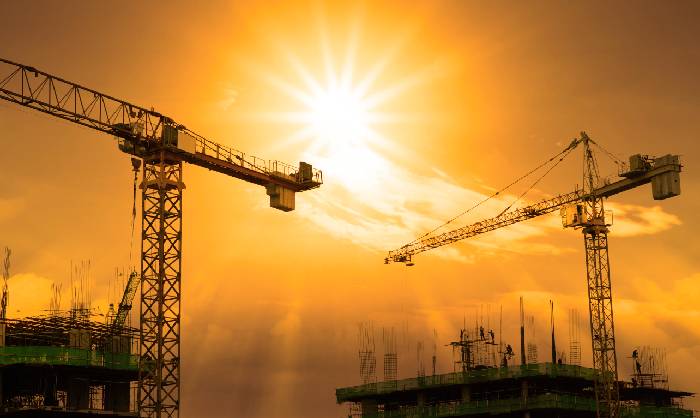
Introduction
Cranes are powerful and versatile machines that are used in a variety of industries. However, they can also be dangerous if not properly operated and maintained. One of the most important aspects of crane safety is conducting regular inspections.
What is An Annual Crane Inspection?
An annual crane inspection in Arizona is a comprehensive examination of a crane to identify any potential safety hazards. The inspection should be conducted by a qualified inspector who is familiar with the type of crane being inspected.
What is the Purpose of an Annual Crane Inspection?
The purpose of an annual crane inspection is to:
- Identify any potential safety hazards
- Ensure that the crane is in compliance with applicable regulations
- Help to prevent crane accidents
What is Included in an Annual Crane Inspection?
An annual crane inspection typically includes the following:
- A visual inspection of the crane’s structure, including the boom, mast, and outriggers
- An inspection of the crane’s hoisting and slewing systems
- An inspection of the crane’s electrical system
- An inspection of the crane’s safety devices
- An inspection of the crane’s documentation, including the maintenance log and load charts
How Often Should Cranes Be Inspected?
Cranes should be inspected annually. However, more frequent inspections may be required depending on the crane’s usage and environment.
What are the Benefits of Annual Crane Inspections?
Annual crane inspections can provide a number of benefits, including:
- Reduced risk of crane accidents
- Improved crane safety
- Reduced insurance costs
- Extended crane life
Best Practices for Annual Crane Inspections
In addition to the specific requirements of the annual crane inspection, there are a number of best practices that should be followed to ensure that the inspection is thorough and effective. These best practices include:
- Using a qualified inspector
- Following a written inspection checklist
- Documenting the results of the inspection
- Taking corrective action on any identified deficiencies
Annual Crane Certification
Once the annual crane inspection is complete, the crane should be certified as safe to operate. The certification should be valid for one year.
Crane Safety
Crane safety is essential for preventing accidents and injuries. In addition to annual inspections, there are a number of other things that can be done to improve crane safety, including:
- Providing crane operators with proper training
- Establishing and enforcing safe operating procedures
- Maintaining cranes in a safe condition
Best Crane Operations
In addition to crane safety, there are a number of best practices that can be followed to ensure that cranes are operated safely and efficiently. These best practices include:
- Following the crane’s load chart
- Using proper signaling techniques
- Ensuring that the crane is properly positioned and leveled
- Avoiding hazards such as power lines and overhead obstructions
Conclusion
Annual crane inspections are an essential part of crane safety. By following the steps outlined in this guide, you can help to ensure that your cranes are safe to operate and that your workers are protected from injuries.
Additional Resources
- OSHA Crane and Derrick Standard 1926.1400
- ASME B30.5 Mobile and Tower Crane Standards
- Crane Institute of America (CIA)
Disclaimer
This blog post is for informational purposes only and should not be considered legal or safety advice. Please consult with a qualified crane inspector or safety professional for specific guidance on crane safety and inspections.
Why Are Crane Accident Investigations Crucial for Safety?
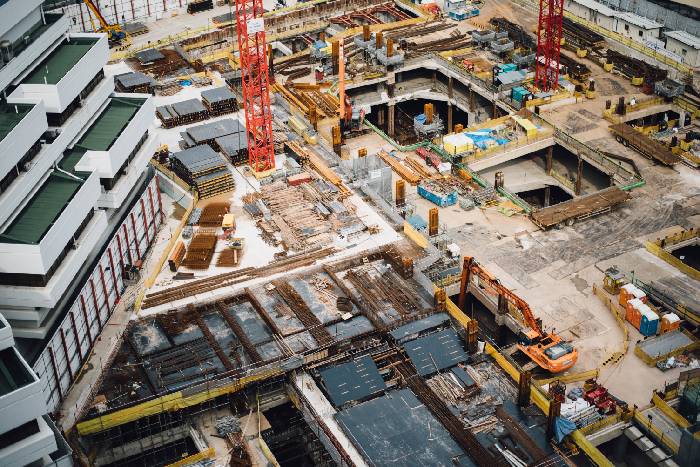
Cranes are indispensable tools in the construction industry, enabling the lifting and movement of heavy materials. However, their immense power and complexity also pose significant safety risks. Crane accidents can have devastating consequences, causing injuries, fatalities, and extensive property damage. To prevent such incidents and enhance safety in crane operations, thorough crane accident investigations are crucial.
Crane Accident Investigations: Unveiling the Causes
Crane accident investigations are comprehensive examinations conducted to determine the root causes of crane accidents. These investigations delve into the intricate details of the incident, meticulously analyzing factors such as:
- Equipment failure: Faulty crane components, worn-out cables, or inadequate maintenance can contribute to accidents.
- Human error: Operator mistakes, miscommunication, or inadequate training can lead to mishaps.
- Environmental factors: Strong winds, uneven terrain, or overloading can compromise crane stability.
- Procedural shortcomings: Deficient safety protocols, improper load calculations, or inadequate supervision can increase accident risks.
By meticulously examining these factors, crane accident investigations provide valuable insights into the underlying causes of accidents, enabling preventive measures to be implemented.
Crane Accident Investigations: Driving Safety Improvements
The significance of crane accident investigations extends beyond identifying the causes of past incidents. They serve as catalysts for safety improvements by:
- Informing safety protocols: Findings from investigations can inform the development of more comprehensive and effective safety protocols for crane operations.
- Guiding training programs: Investigations can highlight areas where crane operator training needs to be strengthened to address identified risks.
- Enhancing equipment maintenance: Investigations can identify patterns of equipment failure, leading to improved maintenance practices and preventive measures.
- Promoting a culture of safety: Thorough investigations underscore the importance of safety in crane operations, fostering a culture of vigilance among crane operators, supervisors, and management.
Crane Accident Investigations in Phoenix
In Phoenix, Arizona, crane accident investigations play a critical role in ensuring safety in the construction industry. Several reputable companies offer crane accident investigation services in Phoenix, providing expert analysis and comprehensive reports to identify the root causes of accidents and recommend preventive measures.
Crane Inspections in Phoenix: A Proactive Approach
Complementing crane accident investigations are crane inspections, proactive measures that identify potential hazards before accidents occur. Crane inspections in Phoenix are conducted by qualified inspectors who thoroughly examine crane components, controls, and rigging to ensure compliance with safety standards.
Conclusion
Crane accident investigations are not merely reactive measures to address past incidents; they are proactive tools for improving safety in crane operations. By identifying the root causes of accidents and informing preventive measures, investigations contribute to a safer construction industry. In Phoenix, crane accident investigation services and crane inspections work in tandem to protect workers, prevent property damage, and enhance safety culture.
Crane Inspections and Why They Are Important?
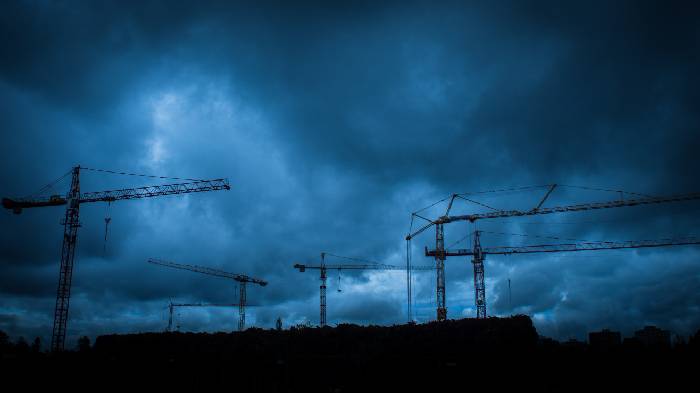
Cranes are heavy-duty machines that are used in a variety of industries, including construction, manufacturing, and transportation. They are essential for lifting and moving heavy loads, but they can also be dangerous if they are not properly maintained. That’s why crane inspections are so important.
What is a Crane Inspection?
A crane inspection is a thorough examination of a crane to identify any potential safety hazards. The inspection should be conducted by a qualified inspector who is familiar with the type of crane being inspected. The inspector will look for signs of wear and tear, damage, and corrosion. They will also check the crane’s controls, brakes, and hydraulics.
Why Are Crane Inspections Important?
There are several reasons why crane inspections are important:
- To prevent accidents: Crane accidents can be serious or even fatal. Regular inspections can help to identify and address potential safety hazards before they can cause an accident.
- To extend the life of the crane: Proper maintenance can help to extend the life of a crane. Regular inspections can help to identify and repair problems early on, before they cause major damage to the crane.
- To comply with regulations: In many jurisdictions, it is a legal requirement to have cranes inspected on a regular basis.
How Often Should Cranes Be Inspected?
The frequency of crane inspections will vary depending on the type of crane and how often it is used. However, most cranes should be inspected at least annually. More frequent inspections may be necessary for cranes that are used more frequently or that are exposed to harsh conditions.
What Should Be Included in a Crane Inspection?
A crane inspection should include a thorough examination of all of the following:
- Crane structure: This includes the crane boom, mast, and base. The inspector will look for signs of wear and tear, damage, and corrosion.
- Crane controls: This includes the crane operator’s cab, levers, and pedals. The inspector will make sure that the controls are in good working order and that they are labeled correctly.
- Crane brakes: The inspector will make sure that the crane brakes are in good working order and that they can stop the crane safely.
- Crane hydraulics: The inspector will make sure that the crane hydraulics are in good working order and that they are not leaking.
- Crane rigging: This includes the crane hooks, slings, and shackles. The inspector will make sure that the rigging is in good working order and that it is not damaged.
Who Should Perform Crane Inspections?
Crane inspections should be performed by a qualified inspector who is familiar with the type of crane being inspected. The inspector should have experience inspecting cranes and be certified by a reputable organization.
What to Do After a Crane Inspection
After a crane inspection, the inspector will provide a report that lists any problems that were found. The report will also include recommendations for repairs. The crane owner should promptly address any problems that were found and make any necessary repairs.
Crane Services in Arizona
If you are looking for crane services in Arizona, there are many reputable companies to choose from. These companies can provide you with a variety of crane services, including crane inspections, crane rentals, and crane repairs.
Mobile Crane Annual Inspection
A mobile crane annual inspection is a thorough examination of a mobile crane to identify any potential safety hazards. The inspection should be conducted by a qualified inspector who is familiar with the type of mobile crane being inspected. The inspector will look for signs of wear and tear, damage, and corrosion. They will also check the crane’s controls, brakes, and hydraulics.
Crane Operators in Arizona
Crane operators in Arizona must be certified by the Occupational Safety and Health Administration (OSHA). OSHA requires that crane operators be trained in the proper operation of cranes and that they be familiar with the safety hazards associated with crane operation.
Conclusion
Crane inspections are an important part of crane safety. Regular inspections can help to prevent accidents, extend the life of the crane, and comply with regulations. If you are looking for crane services in Arizona, there are many reputable companies to choose from. Make sure to choose a company that has qualified inspectors and that can provide you with the services you need.
Crane Collapse Investigation – Recovering From the Tipping Point

A crane collapse is a devastating event that can have catastrophic consequences. In addition to the loss of life and injuries that can occur, crane collapses can also cause significant property damage and business disruption.
In the aftermath of a crane collapse, it is essential to conduct a thorough investigation to determine the cause of the collapse and identify any steps that can be taken to prevent similar incidents from happening in the future.
Crane Collapse Investigation Services in Phoenix
If you have been involved in a crane collapse, there are several crane collapse investigation services in Phoenix that can help you determine the cause of the collapse and identify any liability issues.
Crane accident investigation services typically involve the following steps:
- Site Inspection: The first step is to inspect the crane collapse site and collect evidence. This may involve taking photographs and videos, interviewing witnesses, and gathering documentation such as crane maintenance records and load charts.
- Analysis of Evidence: Once the evidence has been collected, it is analyzed to determine the cause of the collapse. This may involve using engineering software to analyze the crane’s design and performance, or conducting laboratory tests on materials from the crane.
- Report: Once the cause of the collapse has been determined, the investigator will prepare a report that summarizes their findings and conclusions. The report may also include recommendations for preventing similar incidents from happening in the future.
Recovering From the Tipping Point
In addition to the physical and emotional trauma that can result from a crane collapse, there are also a number of financial challenges that victims may face. For example, victims may lose wages due to their injuries, or they may be required to pay for medical expenses and other damages.
If you have been involved in a crane collapse, it is important to seek legal advice to discuss your options for recovering compensation. A lawyer can help you assess your legal rights and options, and they can represent you in negotiations with insurance companies or in court.
Preventing Crane Collapses:
There are a number of steps that can be taken to prevent crane collapses, including:
- Proper maintenance: Cranes must be properly maintained and inspected on a regular basis to identify and repair any potential problems.
- Operator training: Crane operators must be properly trained and certified to operate the type of crane they are using.
- Safe work practices: Crane operators and other workers on the job site must follow safe work practices when operating and working around cranes.
If you are involved in the construction industry, it is important to make sure that you and your employees are taking all necessary steps to prevent crane collapses.
Conclusion:
Crane collapses are serious events that can have devastating consequences. If you have been involved in a crane collapse, it is important to seek legal advice to discuss your options for recovering compensation.
There are a number of steps that can be taken to prevent crane collapses, including proper maintenance, operator training, and safe work practices.
Additional Tips for Recovering From a Crane Collapse:
- Seek Medical Attention Immediately: If you have been injured in a crane collapse, it is important to seek medical attention immediately. Even if you do not feel injured, it is important to be evaluated by a doctor to rule out any internal injuries.
- Contact Your Insurance Company: If you have health insurance, contact your insurance company to file a claim for your medical expenses. If you have disability insurance, you may also be eligible to file a claim for lost wages.
- Document Your Expenses: Keep track of all of your expenses related to the crane collapse, such as medical bills, lost wages, and property damage. This documentation will be helpful if you decide to file a lawsuit.
- Get Legal Advice: If you are considering filing a lawsuit, it is important to consult with an experienced attorney. An attorney can help you assess your legal rights and options, and they can represent you in negotiations with insurance companies or in court.
Recovering from a crane collapse can be a challenging process, but it is important to remember that you are not alone. There are resources available to help you cope with the physical, emotional, and financial challenges that you may be facing.
A Day in the Life of a Crane Operator – 8 Aspects
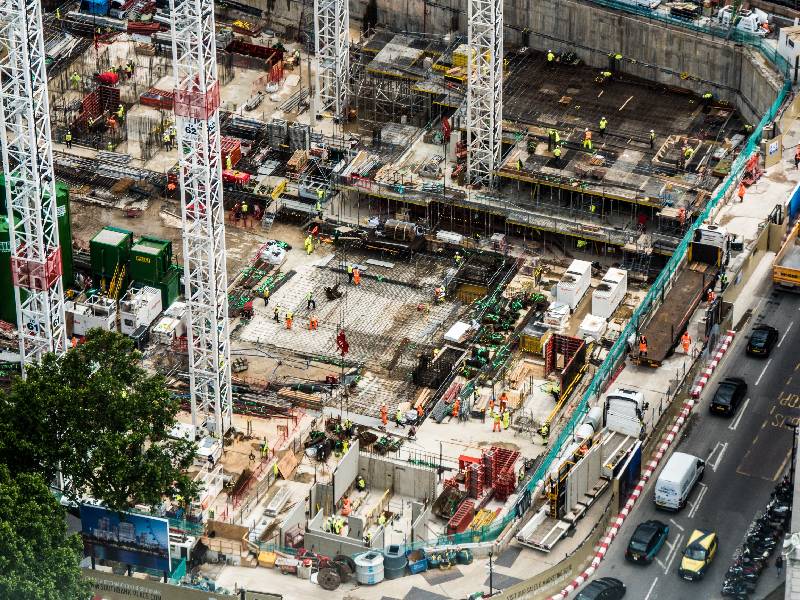
Crane operators play a vital role in the construction industry, responsible for safely and efficiently lifting and moving heavy loads. Their job requires a high level of skill and experience, as well as the ability to work under pressure and in challenging conditions.
If you’re interested in learning more about what it’s like to be a crane operator, this article will take you through a typical day in their life.
1. Pre-Shift Inspection:
The first thing a crane operator does before starting their shift is to conduct a pre-shift inspection of their crane. This involves checking all of the crane’s components for any signs of wear or damage. The operator will also check the crane’s load charts and make sure that the crane is properly calibrated.
2. Set up:
Once the crane has been inspected, the operator will set it up in the desired location. This may involve attaching the crane to a foundation or building, or positioning it on a crane pad. The operator will also need to set up the crane’s load lines and hooks.
3. Lift and Move Loads:
The primary responsibility of a crane operator is to lift and move heavy loads. This can involve anything from moving construction materials to lifting and placing prefabricated sections of a building. Crane operators use their skills and experience to safely and efficiently move loads of all sizes and weights.
4. Communication:
Crane operators must be able to communicate effectively with other workers on the job site. This is especially important when lifting and moving heavy loads, as crane operators need to be able to coordinate their movements with other workers to ensure safety.
5. Problem-Solving:
Crane operators often need to solve problems on the job site. This may involve figuring out how to lift and move a load in a tight space, or dealing with unexpected weather conditions. Crane operators need to be able to think critically and come up with solutions to problems on the fly.
6. Teamwork:
Crane operators often work as part of a team. This may involve working with other crane operators, signal persons, and other construction workers. Crane operators need to be able to work effectively with others to complete tasks safely and efficiently.
7. Safety:
Safety is the top priority for crane operators. They need to be constantly aware of their surroundings and take precautions to avoid accidents. Crane operators also need to be familiar with all of the safety regulations that apply to their job.
8. End-of-Shift Inspection:
At the end of their shift, crane operators will conduct a post-shift inspection of their crane. This is similar to the pre-shift inspection, but it is important to check the crane for any damage that may have occurred during the shift.
Challenges of Being a Crane Operator:
Being a crane operator is a challenging but rewarding job. Some of the biggest challenges that crane operators face include:
- Working in all types of weather conditions: Crane operators often need to work in extreme weather conditions, such as hot summers and cold winters. They also need to be able to work in rain, snow, and wind.
- Working under pressure: Crane operators often need to work under pressure, especially when lifting and moving heavy loads. They need to be able to stay calm and focused in stressful situations.
- Operating heavy machinery: Crane operators operate heavy machinery, which can be dangerous if not used properly. They need to be trained and certified in crane operation.
How to Become a Certified Crane Operator in Phoenix:
If you’re interested in becoming a certified crane operator in Phoenix, there are a few steps you need to take. First, you need to find a crane operator training program. There are several programs available in the Phoenix area.
Once you have completed a training program, you need to pass a certification exam. The certification exam is administered by the National Commission for the Certification of Crane Operators (NCCCO).
Once you have passed the certification exam, you will be certified to operate cranes in the state of Arizona.
Conclusion:
Being a crane operator is a challenging but rewarding job. Crane operators play a vital role in the construction industry, and they are in high demand. If you’re interested in becoming a crane operator, there are several training programs available in the Phoenix area.
Crane Inspection in Arizona:
Crane inspections are required by law in Arizona. All cranes must be inspected annually by a qualified inspector. The inspector will check the crane for any signs of wear or damage. The inspector will also check the crane’s load charts and make sure that the crane is properly calibrated.
If you are a crane operator in Phoenix, it is important to make sure that your crane is inspected annually by a qualified inspector. This will help to ensure the safety of yourself and others on the job site.
How to Choose the Right Company for Your Annual Crane Inspection

If you own or operate a crane, you know how important it is to keep it in good working condition. Not only does regular maintenance ensure the safety and efficiency of your crane, but it also helps you comply with the Occupational Safety and Health Administration (OSHA) standards and regulations. One of the most critical aspects of crane maintenance is the annual crane inspection, which is required by OSHA for all active cranes https://www.americancrane.com/crane-inspections-when-how-how-often/.
But how do you choose the right company for your annual crane inspection? What are the factors that you should consider when hiring a crane inspection service provider? Here are some tips to help you make an informed decision.
Look for a company that has the necessary qualifications and credentials. The company you hire should have qualified and experienced crane inspectors who have the knowledge and skills to perform a thorough and professional inspection of your crane. The inspectors should also have the appropriate certifications, such as the Certified Crane Operator (CCO) certification from the National Commission for the Certification of Crane Operators (NCCCO) https://www.vectorsolutions.com/resources/blogs/how-to-meet-crane-inspection-requirements/. The CCO certification is a nationally recognized and accredited credential that verifies the competence and proficiency of crane operators and inspectors https://www.osha.gov/laws-regs/standardinterpretations/2003-10-31.
Look for a company that has a good reputation and track record. The company you hire should have a solid reputation in the industry and a proven track record of delivering high-quality crane inspection services. You can check the company’s website, social media, online reviews, testimonials, and references to get an idea of their reputation and performance. You can also ask for recommendations from other crane owners or operators who have used their services before.
Look for a company that offers comprehensive and customized crane inspection services. The company you hire should be able to provide you with a complete and detailed inspection report that covers all the aspects of your crane, such as the operating mechanisms, parts, components, accessories, controls, attachments, load hooks, hoist chains, wire ropes, brakes, clutches, sheaves, electrical apparatus, indicators, bearings, and more https://totalequipmenttraining.com/blog/what-does-an-annual-osha-crane-inspection-entail/. The report should also include recommendations for corrective actions and preventive measures to improve the safety and performance of your crane. Additionally, the company should be able to tailor their services to meet your specific needs and preferences, such as the type, size, model, configuration, usage, and condition of your crane.
Look for a company that offers competitive pricing and value-added services. The company you hire should be able to provide you with a fair and reasonable quote for your annual crane inspection service. The quote should be transparent and include all the costs involved, such as labor, materials, equipment, travel expenses, taxes, fees, etc. The quote should also reflect the quality and scope of the service provided. Moreover, the company should be able to offer you some value-added services, such as free consultations, estimates, warranties, guarantees, discounts, or incentives.
If you are looking for the best annual crane inspection in Arizona, look no further than CraneGod Services. We are a crane consulting company that specializes in crane accident investigations, inspections, certifications, training, and more. We have certified crane operators who can provide you with professional and reliable annual crane inspection services at affordable prices. We also have state-of-the-art equipment and technology to ensure that your crane is inspected thoroughly and accurately. Contact us today to find out how we can help you with your annual crane inspection needs.
Crane Accident Investigation: Who, What, When, and Why
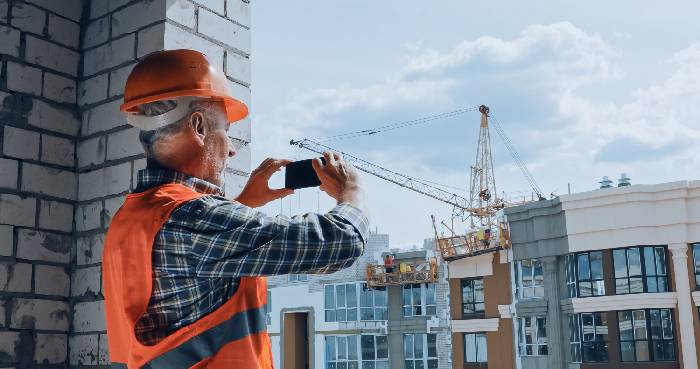
Crane accidents are among the most devastating and costly incidents that can occur on a construction site. They can result in serious injuries, fatalities, property damage, and legal liabilities for the parties involved. That is why it is essential to conduct a thorough and professional crane accident investigation whenever such an event occurs.
Who Initiates a Crane Accident Investigation?
A crane accident investigation can be initiated by various entities, such as:
- The Occupational Safety and Health Administration (OSHA): OSHA is the federal agency that enforces safety and health standards for workplaces in the United States.
- State or local authorities: States and localities may have their own regulations and agencies for crane safety and inspections.
- Insurance companies: Insurance companies may require an investigation to assess the claims and coverage of the parties involved.
- Crane owners, operators, contractors, or subcontractors: The parties involved in the accident may conduct their own investigation to protect their interests and reputation.
- Crane manufacturers, suppliers, or service providers: The manufacturers, suppliers, or service providers of the crane may conduct their own investigation to determine the quality and performance of their products or services.
- Victims or their families: The victims of the accident or their families may seek an investigation to pursue legal action or compensation for their losses.
When Should a Crane Accident Investigation be conducted?
A crane accident investigation should be conducted as soon as possible after the incident, preferably within 24 hours. This is to ensure that the evidence is preserved and not tampered with or destroyed by weather, traffic, or other factors.
What Evidence is gathered During a Crane Accident Investigation?
The evidence that is gathered during a crane accident investigation may include:
- The crane itself, including its components, parts, accessories, controls, and attachments.
- The load that was being lifted or moved by the crane, including its weight, dimensions, shape, rigging, and attachment points.
- The site where the accident occurred, including its layout, terrain, soil conditions, weather conditions, lighting conditions, power lines, obstructions, and other hazards.
- The personnel who were involved in or witnessed the accident, including their names, roles, qualifications, training, experience, statements, and injuries.
- The documents and records related to the crane operation and maintenance, such as manuals, specifications, certificates, permits, inspections reports, maintenance logs, work orders, load charts, lift plans, and safety procedures.
- The photographs and videos of the accident scene and the crane before and after the incident.
Who Analyzes the Evidence During a Crane Accident Investigation?
The analysis of the evidence should be performed by qualified and experienced experts who have the knowledge and skills to examine the technical aspects of the crane operation and identify the human factors that may have contributed to the accident. The experts may include:
- Crane engineers or technicians who can evaluate the design, construction, installation, testing, inspection, maintenance, and repair of the crane.
- Crane operators or trainers who can assess the competence, performance, and behavior of the crane operator.
- Crane safety consultants or inspectors who can review the compliance with the applicable safety standards, regulations, and best practices for crane operation.
- Crane accident reconstruction specialists who can reconstruct the sequence of events, the forces involved, and the impact of the accident using mathematical models, computer simulations, or physical experiments.
What is the Purpose of a Crane Accident Investigation?
The purpose of a crane accident investigation and analysis in Phoenix is not only to determine what happened but also why it happened and how it can be prevented from happening again. The investigation should result in a clear and concise report that summarizes the findings, conclusions, and recommendations of the experts. The report should address the following questions:
-
- Who was responsible for the accident? Was it caused by negligence, error, misconduct, or violation of the rules or procedures by any of the parties involved?
- What were the root causes of the accident? Was it due to a mechanical failure, a human error, a communication breakdown, a procedural flaw, or a combination of these factors?
- When did the accident occur? Was it during the installation, testing, inspection, maintenance, or operation of the crane? Was it during a normal or abnormal condition or situation?
- Why did the accident occur? Was it because of a lack of training, supervision, coordination, or communication among the personnel involved? Was it because of a lack of awareness, attention, judgment, or skill by the crane operator? Was it because of a lack of quality, reliability, or suitability of the crane or its components?
- How can the accident be prevented from happening again? What are the corrective actions that need to be taken by the parties involved? What are the preventive measures that need to be implemented.
How Arizona Construction Crane Accidents Happen
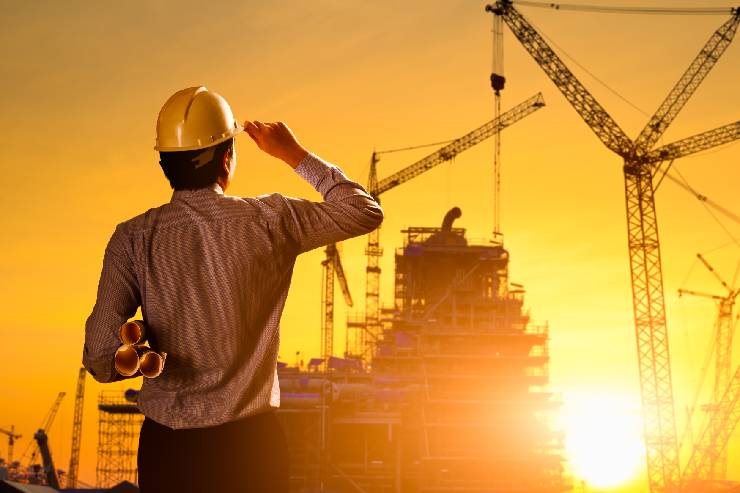
Construction cranes are vital for many projects in Arizona, as they can lift and move heavy materials and equipment with ease and efficiency. However, cranes are also complex and dangerous machines that can cause serious accidents and injuries if not operated or maintained properly. According to the Bureau of Labor Statistics (BLS), there were 297 fatal crane-related accidents in the United States from 2011 to 2017, resulting in 323 worker deaths. In Arizona, there were 9 fatal crane-related accidents in the same period, resulting in 10 worker deaths.
What Are the Common Causes Of Crane Accidents?
Crane accidents can happen for various reasons, but some of the most common causes are:
- Human Error: This can include operator error, such as exceeding the crane’s load capacity, operating the crane in adverse weather conditions, or failing to follow safety procedures. It can also include worker error, such as entering the crane’s swing radius, working under a suspended load, or failing to wear protective equipment.
- Mechanical Failure: This can include defects or malfunctions in the crane’s components, such as the boom, cables, hooks, brakes, or controls. It can also include improper assembly or disassembly of the crane, or inadequate inspection or maintenance of the crane.
- Environmental Factors: This can include external factors that affect the crane’s stability or performance, such as high winds, lightning, power lines, or uneven terrain. It can also include hazards on the worksite, such as debris, obstacles, or other vehicles.
What Are the Common Types of Crane Accidents?
Crane accidents can result in various types of injuries and damages, but some of the most common types are:
- Crane Collapse: This occurs when the crane’s structure fails or collapses due to overload, instability, or structural damage. This can cause severe injuries or fatalities to the operator and workers nearby, as well as damage to property and equipment.
- Crane Contact: This occurs when the crane or its load comes into contact with an object or a person. This can cause electrocution, burns, cuts, bruises, fractures, amputations, or death to the operator and workers nearby.
- Crane Fall: This occurs when the crane or its load falls from a height due to loss of control, detachment, or breakage. This can cause crushing injuries, head injuries, spinal injuries, internal injuries, or death to the operator and workers below.
How Can Crane Accidents Be Prevented?
Crane accidents can be prevented by following some basic safety tips and guidelines, such as:
- Hiring qualified and experienced crane operators who have received proper training and certification.
- Conducting thorough and annual crane inspections in Arizona of cranes and their components before and after each use.
- Performing routine and preventive maintenance of cranes and their components according to manufacturer’s specifications and industry standards.
- Using appropriate and well-maintained rigging equipment and accessories for lifting and securing loads.
- Following the crane’s load chart and capacity limits and avoiding overloading or underloading the crane.
- Operating the crane in accordance with weather conditions and visibility and avoiding operating the crane near power lines or other hazards.
- Establishing a clear communication system between the operator and workers on the ground using signals, radios, or spotters.
- Implementing a safety zone around the crane and its load and prohibiting unauthorized entry or access.
- Wearing proper personal protective equipment (PPE) such as hard hats, gloves, boots, goggles, and vests.
How Can Cranegod Services Help You?
If you are involved in a crane accident in Arizona, you may need professional help to investigate the cause and determine the liability of the parties involved. You may also need legal representation to seek compensation for your injuries and damages. That’s where CraneGod Services comes in. CraneGod Services is a reputable and reliable company that offers crane accident investigation services in Arizona. They have a team of expert crane inspectors, engineers, lawyers, and consultants who can help you with all aspects of your crane accident case.
If you are interested in hiring CraneGod Services for your crane consulting needs, you can contact them by phone at 602-697-8470 or by visiting their web site at: https://cranegodservices.com/ to learn more about their services and request a free quote.
Crane Consulting: The Key to Streamlined Operations and Improved ROI
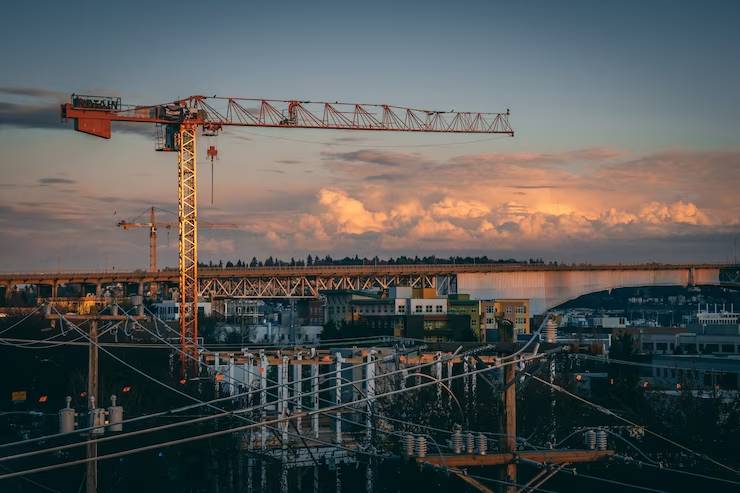
If you are in the construction, manufacturing, or mining industry, you know how important it is to have reliable and efficient cranes for your projects. Cranes are essential for lifting, moving, and placing heavy materials and equipment, as well as ensuring safety and productivity. However, cranes are also complex and costly machines that require proper maintenance, inspection, and operation. That’s why you need crane consulting & outsourcing services from CraneGod Services.
CraneGod Services is a leading provider of crane consulting services in Arizona and beyond. They have a team of experienced and certified crane inspectors, engineers, and operators who can help you with all your crane-related needs. Whether you need crane inspection, crane design, crane installation, crane operation, crane training, or crane outsourcing, they have the solution for you.
CraneGod Services Can Help You Achieve the Following Benefits:
Streamlined Operations: They can help you optimize your crane performance and efficiency by conducting thorough inspections, audits, and assessments of your cranes. They can also help you design and install new cranes or upgrade your existing ones to meet your specific requirements and standards. They can also provide you with qualified and trained crane operators who can handle your cranes safely and professionally.
Improved ROI: They can help you reduce your crane costs and risks by providing you with preventive maintenance, repair, and replacement services. They can also help you save money and time by outsourcing your crane operations to them. They have a fleet of modern and well-maintained cranes that can suit any project size and scope. They can also handle the logistics, permits, insurance, and compliance issues for you.
Enhanced Safety: They can help you ensure the safety of your workers, equipment, and environment by following the best practices and regulations for crane operation. They can also help you prevent accidents and injuries by providing you with regular safety training and education for your staff. They can also assist you with emergency response and recovery in case of any crane incidents.
Why Choose CraneGod Services?
CraneGod Services is not just another crane company. They are one of the best crane inspectors in Arizona and are a trusted partner who can provide you with comprehensive and customized crane solutions that can meet your needs and exceed your expectations. Here are some of the reasons why you should choose them:
- They have years of experience in the crane industry and have served hundreds of satisfied clients across various sectors.
- They offer competitive pricing and flexible payment options that can fit your budget and schedule.
- They provide strong customer support and service that can address any issues or concerns that you may have.
How to contact CraneGod Services?
If you are interested in hiring CraneGod Services for your crane consulting needs, you can contact them by phone at 602-697-8470 or by visiting their web site at: https://cranegodservices.com to learn more about their services and request a free quote.
CraneGod Services is the key to streamlined operations and improved ROI for your cranes. Don’t settle for less than the best when it comes to your cranes. Contact them today and let them take care of your cranes for you.